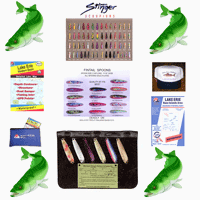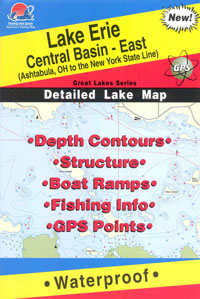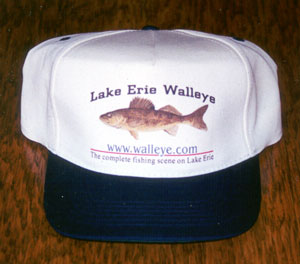Back Tracking Late Season
Walleyes
by Ron Anlauf
By late season most walleye anglers have already thrown in the towel,
and who could blame them? Tough fishing is hard to take, especially trip
after trip. When you keep coming up empty you start to think of other
things you could be doing, but it doesn’t have to be that way. What many
anglers don't know is that there's still some good action left to be
had, if only they knew where to look.
who could blame them? Tough fishing is hard to take, especially trip
after trip. When you keep coming up empty you start to think of other
things you could be doing, but it doesn’t have to be that way. What many
anglers don't know is that there's still some good action left to be
had, if only they knew where to look.
Back tracking is how you get started and it would be a good idea to
give areas that have already turned on and turned off another try. When
the word gets out hot spots get pounded and the action can quickly grind
to a halt, that is until the horde of anglers race to the next hot spot
and beat it to death, and so on, and so on. Once all of the commotion
has come and gone and the dust settles a lot of burned out hot spots can
rekindle and heat up again. The only thing is there's usually nobody
there to take advantage of it, except for maybe a sneaky few that keep
the good news all to themselves.
Quite often fish will re-group and re-position themselves back where
they started, and can include the usual areas like deep humps, points,
inside turns, etc. It doesn't take all that long for the process to take
place, but giving a burnt out spot a week or two to settle down might be
in order. From there you can look even further and head for shallower
rocky bars and reefs, especially late in the season when deep layers of
snow have started to melt off.
Although active fish might be back where they started, you may still
have to deal with a fish that's not all that wound up. Presentations
that attract without chasing away are what the situation calls for and
that still includes a good dose of jigging spoons. But instead of the
heavier thrashers, lighter slow falling baits like Northland Tackle's
Fire-Eye Minnow tipped with a minnow head can be the big ticket. The
bait has a slow falling fluttering action that can draw fish in and may
be too much for walleyes to resist. Earlier in the season a hard snap
can trigger active fish, but things have probably changed. By now you
might be better off using a softer lift followed by short periods of a
dead stop, or maybe a quiver of the rod tip from side to side. The idea
is to give the bait some action without overpowering it and spooking
potential candidates.
With the spoon and a depth finder like the Marcum LX-5, you'll get a
good idea if you're in the right area because they will show themselves,
even if they don't bite. The LX-5 does a superb job of marking fish that
are holding close to the bottom which can be extremely important when
trying to determine if you’re in the right neighborhood. No fish means
no fish, at least not now. Those that are coming in for a look and
passing up what you're selling may be looking for something more
sedentary, like a minnow rigged on a light jig below a slip bobber or a
tip-up. A light jig will help keep your minnow pinned to the bottom
where it belongs, and restrict it from swimming up and out of the fish
zone. When you set the depth you’ll probably want to keep it close to
but not on the bottom, and the LX-5 can make it nice and easy. When you
drop the minnow down the hole you’ll see it on the depth finder and can
then set it at the desired depth.
One you’ve determined a depth for your tip-up you might try snapping
on a Bad Bead from Dr. Drop and marking the line which will allow you to
quickly re-set the rig to the same position after a bait check, or after
you’ve iced a fish. The Bad Bead will snap on and grip the line and stay
put but can still be moved up or down with a firm pull and yet won’t
damage the line.
Tip-ups are a great tool for covering water and locating fish, and
the more you can legally set up the better.That doesn't mean you should
give up on the spoon however, as there’s never really a wrong time to
have a spoon rod in your hand, except maybe when you’re chasing down a
flag.
If you’re still seeing fish but not catching it could simply be a
timing issue. Prime time typically revolves around the last hour or so
of daylight, so don't leave too soon or you could miss the boat. Fish
that we’re showing up earlier in the day (but not responding) could
suddenly turn on as the sun starts to set and if you’re in the right
place you can ice a lot of nice ’eyes in short order.
This offer has no guarantees but there is a good chance there’s quite
a few walleyes still waiting for somebody to show up and offer them
something they can’t refuse. It could just as well be me and you.
See you on the ice.




